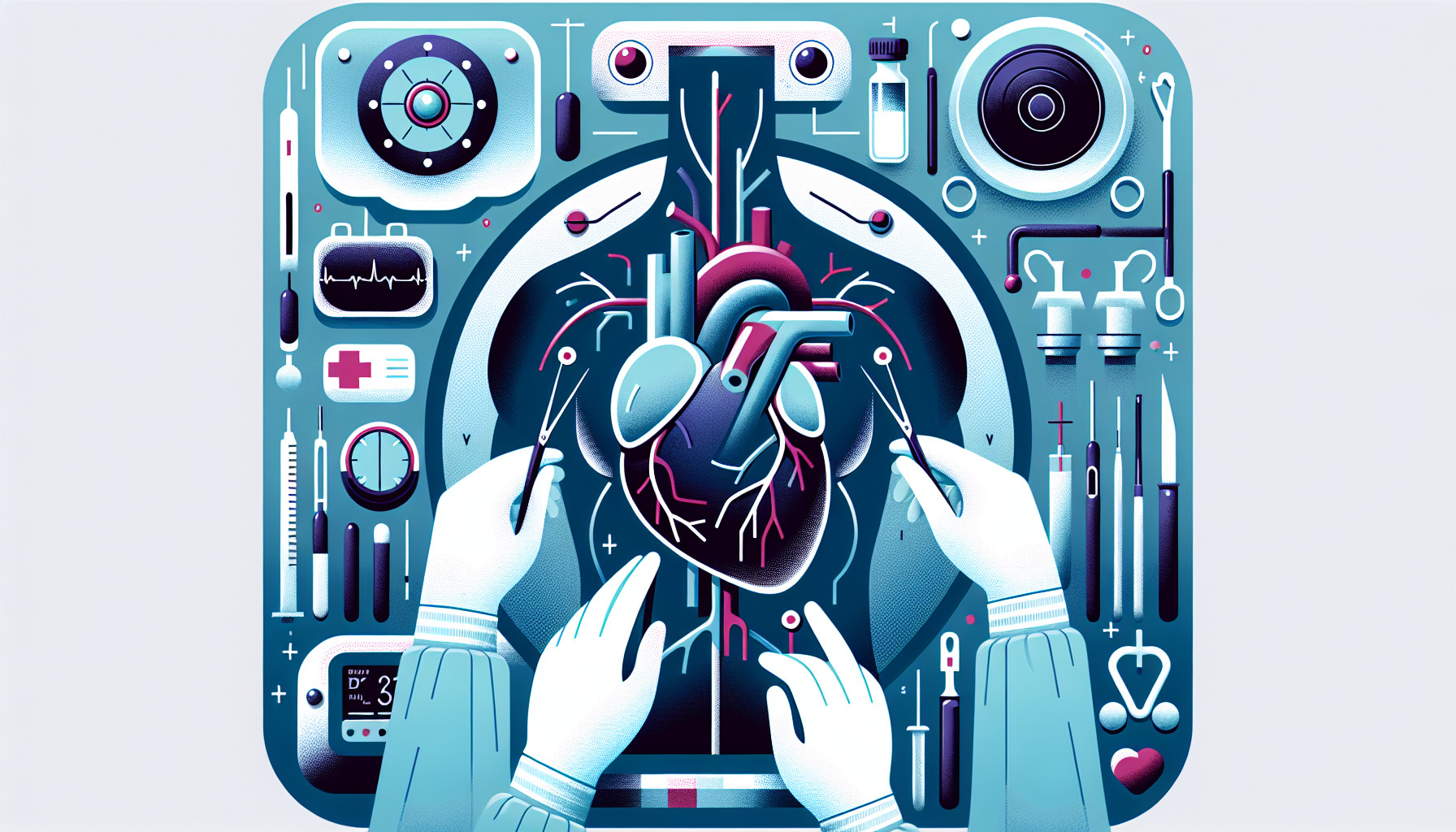Our Summary
This research paper looks at a surgical technique called “no-touch” saphenous vein harvesting, which is used in heart bypass surgery. The researchers wanted to find out if this method was better than the traditional technique in terms of fewer complications and better patient outcomes.
The researchers randomly assigned patients to either the no-touch method or the conventional one. They then tracked a number of outcomes, such as whether the vein graft got blocked, if the patient needed another procedure, or if the patient died.
They found that the no-touch method did not result in fewer complications or better outcomes than the traditional method. In fact, more patients who had the no-touch method had complications with their leg wounds, and more reported ongoing leg symptoms two years after the surgery.
In conclusion, the researchers found that the no-touch method was not better than the traditional method for heart bypass surgery. They also noted that their findings should be interpreted with care due to fewer than expected complications in both groups.
FAQs
- What is the “no-touch” saphenous vein harvesting technique?
- Did the research find that the “no-touch” method resulted in fewer complications and better patient outcomes compared to the traditional method?
- Did more patients who underwent the “no-touch” method report ongoing leg symptoms after surgery?
Doctor’s Tip
One helpful tip a doctor might tell a patient about coronary artery bypass is to discuss with their surgeon the different techniques that can be used, such as the no-touch method, and weigh the potential benefits and risks. It is important for patients to be informed about their options and to have open communication with their healthcare team to ensure the best possible outcome for their surgery.
Suitable For
Coronary artery bypass surgery is typically recommended for patients who have severe coronary artery disease, which is a condition where the arteries that supply blood to the heart become narrowed or blocked. This can lead to chest pain (angina), shortness of breath, heart attack, or other serious complications.
Patients who may be recommended for coronary artery bypass surgery include those who have:
- Severe blockages in multiple coronary arteries
- Severe blockages in the left main coronary artery
- Severe blockages in the arteries that supply the heart muscle
- Failed to respond to other treatments, such as medication or lifestyle changes
- Severe symptoms that affect their quality of life and daily activities
It is important for patients to discuss the risks and benefits of coronary artery bypass surgery with their healthcare provider to determine if it is the best treatment option for their specific condition.
Timeline
Before coronary artery bypass surgery:
- Patient undergoes various tests and evaluations to determine the extent of blockages in the coronary arteries and the overall health of the heart
- Patient may be prescribed medications to manage symptoms and reduce the risk of complications
- Patient may undergo lifestyle changes such as diet and exercise modifications to improve heart health
During coronary artery bypass surgery:
- Surgeon makes an incision in the chest to access the heart and coronary arteries
- Surgeon takes a healthy blood vessel (usually the saphenous vein from the leg) and attaches it to the blocked coronary artery to bypass the blockage
- Surgery typically lasts several hours and patient is under general anesthesia
- Patient is closely monitored in the intensive care unit (ICU) immediately after surgery
After coronary artery bypass surgery:
- Patient stays in the hospital for several days to recover and receive post-operative care
- Patient may experience pain, fatigue, and difficulty breathing in the days following surgery
- Patient undergoes cardiac rehabilitation to improve heart function and overall health
- Patient is prescribed medications to manage symptoms, prevent complications, and reduce the risk of future heart problems
Overall, coronary artery bypass surgery is a major procedure that requires careful preparation, skilled execution, and dedicated post-operative care to ensure the best possible outcomes for the patient.
What to Ask Your Doctor
Some questions a patient should ask their doctor about coronary artery bypass surgery include:
- What are the potential risks and complications associated with the surgery?
- How will the surgery benefit me in terms of improving my heart health and quality of life?
- What is the success rate of this procedure in terms of preventing future heart problems?
- How long is the recovery process, and what can I expect during the recovery period?
- Are there any lifestyle changes or medications I will need to take after the surgery?
- Will I need any additional procedures or treatments in the future after the bypass surgery?
- What alternative treatment options are available for my condition, and why is coronary artery bypass surgery recommended for me?
- How experienced is the surgical team performing the procedure, and what is their success rate with this surgery?
- What can I do to prepare for the surgery, and what should I expect during the hospital stay?
- How often will I need follow-up appointments and monitoring after the surgery to ensure my heart health is maintained?
Reference
Authors: Thelin S, Modrau IS, Duvernoy O, Dalén M, Dreifaldt M, Ericsson A, Friberg Ö, Holmgren A, Hostrup Nielsen P, Hultkvist H, Jensevik Eriksson K, Jeppsson A, Lidén M, Nozohoor S, Ragnarsson S, Sartipy U, Ternström L, Themudo R, Vikholm P, James S. Journal: Eur Heart J. 2025 May 7;46(18):1720-1729. doi: 10.1093/eurheartj/ehaf018. PMID: 39969129
